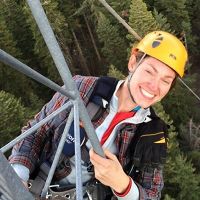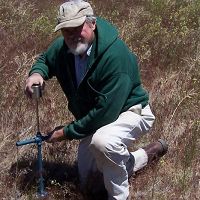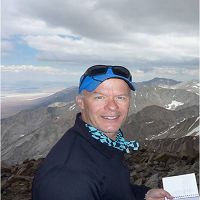Stacy et al., 2018
Stabilization Mechanisms and Decomposition Potential of Eroded Soil Organic Matter Pools in Temperate Forests of the Sierra Nevada, California
Stacy, E.M.; Berhe, A.A.; Hunsaker, C.T.; Johnson, D.W.; Meding, S.M.; Hart, S.C. (2018)
Journal of Geophysical Research: Biogeosciences, 124
-
Sierra, STAFF
-
Sierra, INVESTIGATOR
-
Sierra, INVESTIGATOR
-
Sierra, INVESTIGATOR
-
Sierra, INVESTIGATOR
Abstract
The lateral destination and potential decomposition of soil organic matter mobilized by soil erosion depends on factors such as the amount and type of precipitation, topography, the nature of mobilized organic matter (OM), potential mixing with mineral particles, and the stabilization mechanisms of the soil OM. This study examined how the relative distribution of carbon (C) and nitrogen (N) in different OM fractions varied in soils from eroding slopes and in eroded sediments in a series of low‐order forested catchments in the western Sierra Nevada, California. We found that precipitation amount played a major role in mobilizing OM. More than 40% of the OM exported from these forested catchments was free particulate OM, or OM physically protected inside relatively less stable macroaggregates, compared to OM inside microaggregates or chemically associated with soil minerals. Years with high amounts of precipitation generally transported more mineral‐associated OM, with lower C and N concentrations, while sediment transported in drier years was more enriched in unprotected, coarse particulate OM derived from surficial soils. When incubated under the same conditions, sediment C (from material captured in settling basins) produced 72–97% more CO2 during decomposition than soil C did. Our results suggest that without stabilization through burial or reconfigured organomineral associations, this sediment OM is prone to decomposition, which may contribute to little to no terrestrial CO2 sink induced from erosion in these Mediterranean montane forest ecosystems.
Citation
Stacy, E.M.; Berhe, A.A.; Hunsaker, C.T.; Johnson, D.W.; Meding, S.M.; Hart, S.C. (2018): Stabilization Mechanisms and Decomposition Potential of Eroded Soil Organic Matter Pools in Temperate Forests of the Sierra Nevada, California. Journal of Geophysical Research: Biogeosciences, 124. DOI: 10.1029/2018JG004566
 This Paper/Book acknowledges NSF CZO grant support.
This Paper/Book acknowledges NSF CZO grant support.
Explore Further





